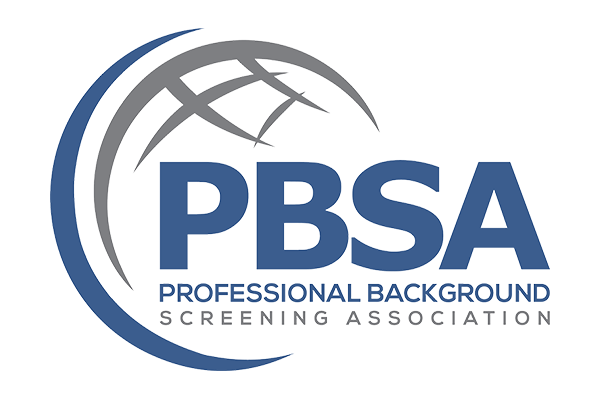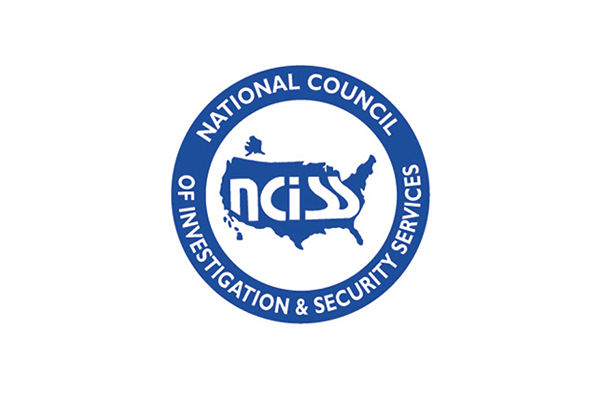Ensuring an optimal hiring process involves a delicate balance between conducting comprehensive background checks and respecting data privacy. This balance is not only ethically and legally mandated. Still, it is pivotal in preserving your organization's reputation and attracting quality candidates. This guide explores the intricacies of safeguarding data privacy while conducting background checks.
Understanding the Crucial Role of Background Checks
Effective hiring revolves significantly around background checks, which enable employers to verify the accuracy of information provided by candidates. They not only reveal crucial data regarding an applicant's employment history, educational qualifications, and potential criminal records but also assist employers in making informed and sound recruitment decisions by validating the reliability and trustworthiness of a candidate.
However, while background checks are vital, they intersect intricately with data privacy, especially in a digital age where information can quickly be disseminated without consent. Balancing the need for comprehensive reports with the necessity to respect privacy and comply with relevant laws becomes a complex challenge that every employer must navigate.
Challenges in Balancing Thorough Background Checks and Privacy
The predicament for employers arises when trying to balance the meticulous scrutiny required in background checks with the ethical and legal obligations to respect a candidate's data privacy. How does one delve into a candidate's past to ensure they are a fitting hire and not infringe upon their rights or misuse their data?
Employers find themselves walking a tightrope of conducting thorough checks—peeking into candidates' professional and sometimes personal history—and ensuring all their processes comply with stringent data privacy regulations, like the GDPR or other localized data protection laws.
Legal and Ethical Foundations of Data Privacy
Data privacy is not merely an ethical practice but is entrenched in legal frameworks designed to safeguard individual's personal information. One pivotal regulation, the General Data Protection Regulation (GDPR), dictates clear guidelines on handling personal data, particularly concerning collecting, storing, and using such information during processes like background checks. The GDPR and other regional and local data privacy laws mandate that businesses adhere to specific protocols that ensure that candidates' data is processed securely and transparently.
Comprehending and respecting these legal frameworks is paramount. Non-compliance, intentional or through oversight, can expose organizations to litigation and hefty fines, eroding trust amongst current employees and potential candidates. Therefore, embedding legal adherence into the hiring strategy is not just about avoiding penalties but about establishing a reputation for integrity and reliability in the professional domain.
Beyond Compliance to Building Trust
Respecting data privacy extends beyond legal compliance. It threads into the ethical fabric of an organization, impacting its credibility and the trust candidates place in its processes. Ethical data handling implies that the candidate's privacy remains paramount even in the absence, or gray areas, of legal stipulations. It involves transparent communication about why data is being collected, how it will be used, and how it will be protected.
The ethical management of candidate data also involves ensuring that the information is utilized solely for its collected purpose—evaluating a candidate's suitability. It consists of safeguarding the data against unauthorized access and ensuring that it is disposed of securely and respectfully once it has served its purpose.
Employers who mirror their hiring processes with ethical considerations, in tandem with legal compliance, not only safeguard themselves against legal repercussions but also fortify their reputation as a trustworthy, ethical entity in the eyes of their prospective workforce.
Practical Implementation of Background Checks in Adherence with Data Privacy
The initial practical step in managing background checks effectively is ensuring that information collection is relevant and precise. Employers must delineate clear guidelines that define the scope and limit of background checks, ensuring that only pertinent, job-related information is sought from and about the candidates. By adopting a 'minimum necessary' principle, organizations can assure candidates that their privacy is respected and that only essential data for the hiring process is collected and scrutinized.
Security and Retention
As soon as data is collected, its security becomes paramount. Organizations must implement robust data protection mechanisms, such as encryption for digital data and secure physical storage for hard copy records. Frequent audits and security checks should be conducted to identify and rectify potential vulnerabilities in the system, safeguarding the data from unauthorized access, breaches, and leaks.
Furthermore, a clear data retention policy should be articulated and adhered to. This policy must define how long the data will be retained, the conditions under which it will be destroyed, and the methods to achieve destruction. Ensuring secure and timely data disposal complies with data protection laws and signals to the candidates that their information is handled responsibly.
Transparency and Consent
Transparency is the cornerstone of ethical background checks. Employers should adopt a transparent communication strategy, informing candidates of the nature, purpose, and duration of data storage pertaining to the background checks. Clarifying why specific information is needed and how it will impact the hiring decision fosters an atmosphere of honesty and respect.
Obtaining informed consent from candidates before initiating background checks is a legal requirement and an ethical practice that empowers them. This involves clear documentation that elucidates what the candidate agrees to, thereby giving them control over their personal information and establishing trust between them and the organization.
Continuous Improvement
Lastly, data privacy continuously evolves, with new regulations, technologies, and challenges emerging regularly. Organizations must, therefore, adopt a stance of continuous improvement and adaptability, ensuring that their background check processes evolve in line with legal, technological, and ethical developments.
The Repercussions of Non-Compliance in Background Checks
Disregarding or mishandling data privacy regulations in background checks can herald legal consequences for employers. In this context, legal liability pertains to the potential for litigation, hefty fines, and penalties that could be leveled against the organization. Especially when an individual feels their data has been misused or their privacy violated, they might seek legal recourse, subjecting the employer to potential lawsuits. The financial ramifications can be significantly detrimental, and navigating through legal proceedings can deplete resources, time, and focus from the core operational aspects of the business.
Reputational Damage
While financial implications are palpable and immediately felt, reputational damage can have a lingering, insidious impact on an organization. News of non-compliance or unethical handling of candidates' data can tarnish a company's public image, diminishing its standing in the eyes of current employees, potential candidates, clients, and partners. The erosion of trust is not merely isolated to hiring processes. Still, it seeps into customer relationships and business partnerships, possibly deterring talented individuals from associating with a company perceived as untrustworthy.
Operational Setbacks
When legal proceedings are initiated, companies may be entangled in administrative and operational hindrances. These range from investing time to compile relevant documentation, diverting resources to manage the legal case, or possibly revising and halting standard operational processes if non-compliance is systemic. These disruptions can impede the organization's momentum, delaying projects and leading to financial losses beyond legal penalties.
Talent Acquisition Challenges
In an era where data privacy is a hot topic, prospective employees are likely to be acutely aware and sensitive to how their potential employers handle personal information. Cases of non-compliance or data mishandling can serve as a red flag, possibly deterring high-quality candidates from applying for or accepting offers. The long-term effect on talent acquisition can result in the organization struggling to attract individuals who align with its needs, ultimately affecting the quality of its workforce and, consequently, its products or services.
Takeaway
Navigating the myriad consequences of non-compliance in background checks underscores the criticality of embedding data privacy principles in every facet of the hiring process. From the onset, an intentional, ethical, and legally compliant strategy should be in place to safeguard the candidates' data and protect the organization from the cascading repercussions of mismanagement in this sphere.
Remedial Measures and Proactive Strategies for Ensuring Compliance
1. Comprehensive Training and Awareness Programs
An informed team is pivotal in avoiding potential missteps in data handling during background checks. Implement comprehensive training and awareness programs, ensuring that everyone involved in the hiring process understands the legalities and ethics of data privacy. Regularly updating the team about evolving laws and practices can fortify the organization against accidental non-compliance.
2. Adopting a Data Privacy Framework
Developing and implementing a data privacy framework that aligns with global standards, such as the GDPR, can be a robust guideline for all background check processes. This framework should encapsulate principles related to data minimization, lawful processing, transparency, and security, thereby serving as a comprehensive guide for decision-making and practices related to personal data.
3. Utilizing Technology and Expertise
Leverage technology to safeguard data, and where plausible, utilize expert consultations. Employing secure, encrypted storage solutions, using reliable platforms for background checks, and integrating tech-enabled compliance checks can augment the organization's adherence to data privacy norms.
4. Establishing a Transparent Communication Channel
Formulate and communicate clear policies regarding data handling, storage, and usage during hiring. Ensure that potential hires know their rights, the extent of the checks being conducted, and the measures to protect their data. Transparency is critical in building trust and can also serve as a safeguard against potential misunderstandings and grievances.
5. Conducting Regular Audits
Execute regular audits of the hiring and data management processes. This helps to identify any potential areas of non-compliance or weakness in data security before they can burgeon into serious issues. Regular reviews and updates of policies and practices in line with the latest regulations and technologies are also essential to ensure sustained compliance.
6. Creating a Responsive Strategy for Mistakes
Despite the best precautions, mistakes can happen. Creating a responsive strategy that outlines the steps to be taken in the event of a data mishandling incident is critical. This should include communication strategies, immediate corrective actions, and measures to prevent future occurrences.
7. Encouraging an Ethical Culture
Cultivate a work culture where ethical handling of data is valued and rewarded. An environment that fosters respect for individual privacy and upholds ethical principles can be a foundational pillar in ensuring compliance across all levels of the organization.
Takeaway
Compliance with background checks isn't just about avoiding legal repercussions. It reflects an organization's values and respect for individuals' privacy. By embedding robust, ethical practices into the fabric of the hiring process, organizations not only safeguard themselves against legal and reputational damage but also position themselves as entities that value and respect individuals, potentially attracting a higher caliber of applicants.
Nurturing Respect and Compliance in Hiring Practices
Navigating the multifaceted world of background checks and data privacy is undeniably complex yet utterly crucial in maintaining a respectful, ethical, and legally compliant hiring process. Through the strategic intertwining of lawful adherence, ethical consideration, and practical implementation, organizations safeguard themselves against potential litigation and reputational damage and forge a path that respects and honors individual data privacy.
Key Takeaways
- Strategic Balance: Achieve a delicate balance between acquiring essential candidate information through background checks and safeguarding data privacy.
- Legal and Ethical Adherence: Ensure a meticulous understanding and adherence to regional and global data privacy laws, weaving them seamlessly into your hiring practices.
- Cultivating Transparency: Engage in open, honest communication with candidates regarding data usage, fortifying trust and averting potential misunderstandings.
- Technology Utilization: Leverage technological solutions to enhance security and streamline compliance in your data management processes.
- Continuous Vigilance: Employ regular audits and reviews of your data management and hiring practices to ensure sustained compliance and security.
- Responsive and Ethical Culture: Nurturing a workplace environment that respects and upholds data privacy ensures ethical and legal adherence permeates organizational practices.
In conclusion, background checks and data privacy are integral to achieving an optimal and respectful hiring process and building a safer work environment. With the correct understanding and implementation of these principles, employers can significantly improve their hiring process while respecting their potential employees' privacy.
Note: Employment screening compliance is a delicate matter that requires an intricate understanding of both privacy and employment laws.
It is the employer's responsibility to make well-informed decisions while also ensuring data privacy. Through this guide, one can better understand how to securely and effectively conduct background checks.
Further Questions?
If you have additional questions about employment screening compliance, or if you need further clarification regarding the information covered in this guide, please feel free to:
- Contact CIC
- Explore our wide range of services
- Ask our team of experts any employment screening-related questions
We are here to provide you with the information and tools necessary to make informed decisions about your hiring processes. Our ultimate objective is to assist you in creating a secure, respectful, and efficient workplace.
Remember, ignoring compliance or violating privacy rights during background checks can expose you to substantial legal liabilities and reputational damage. It is always advisable to seek professional advice to avoid these risks.
Take Action Now
We strongly encourage you to take appropriate steps toward improving your background check procedures and data privacy practices. Contact CIC today to learn how we can aid you in this process. Call 419.874.2201.







